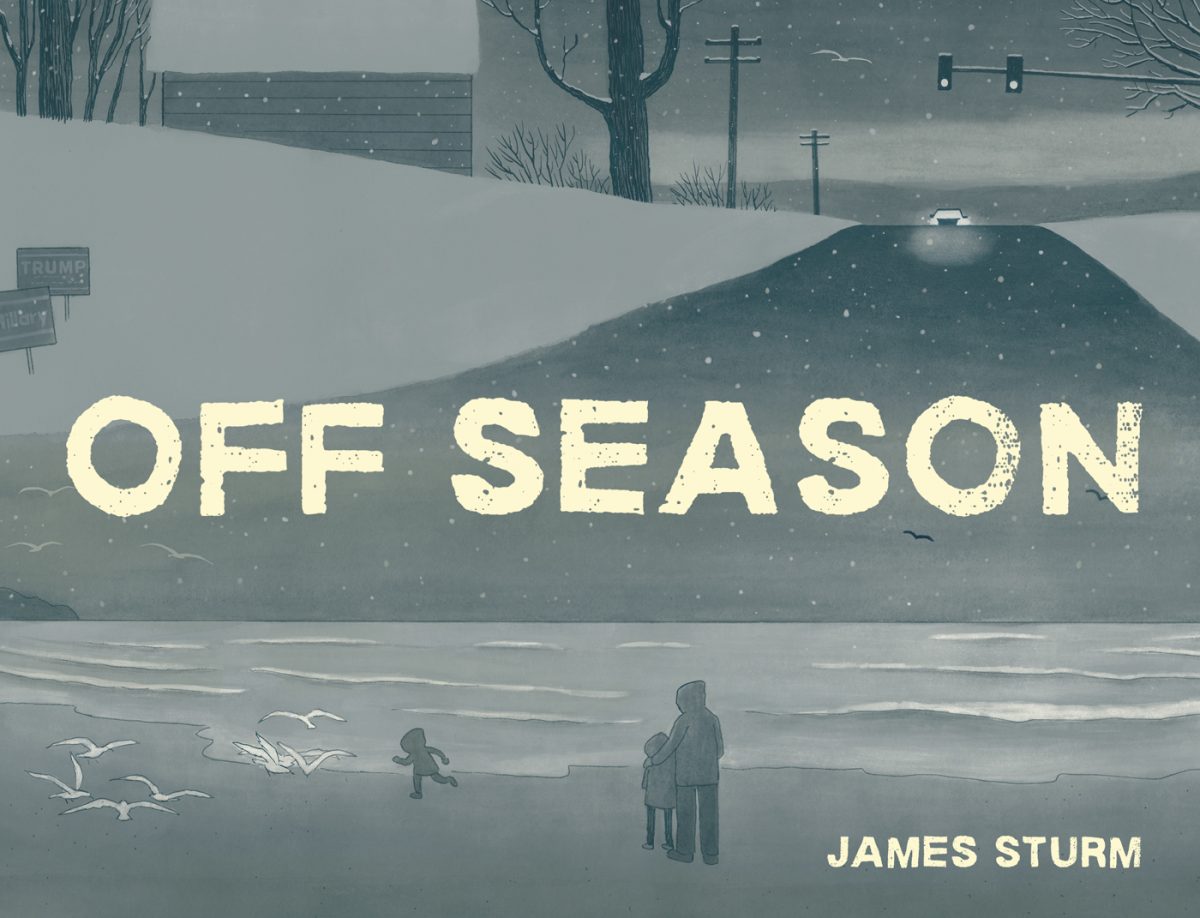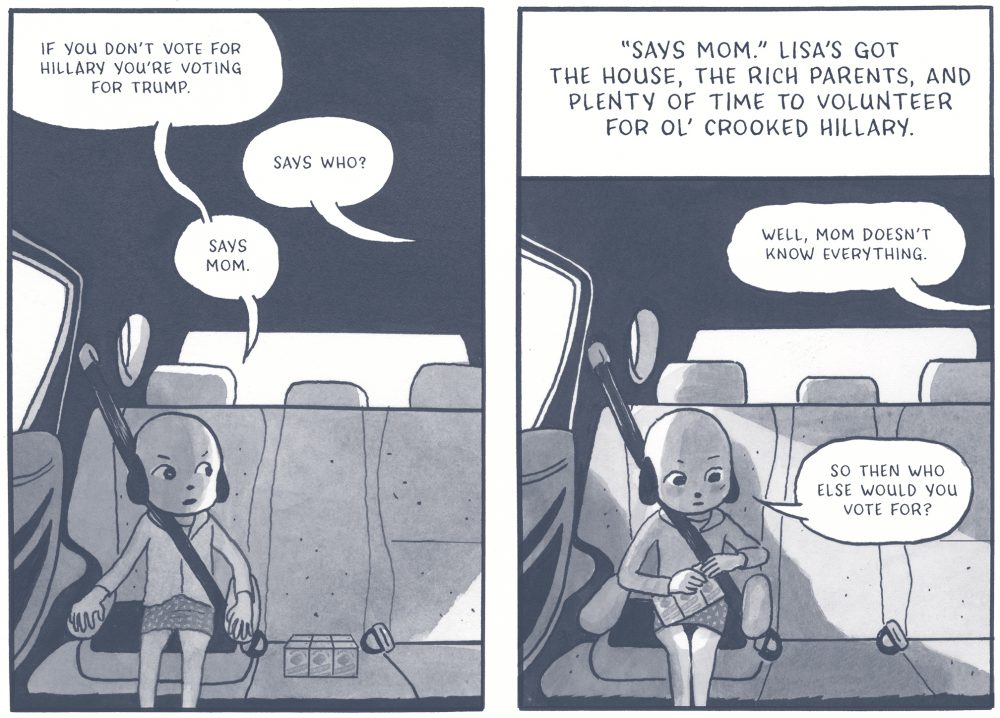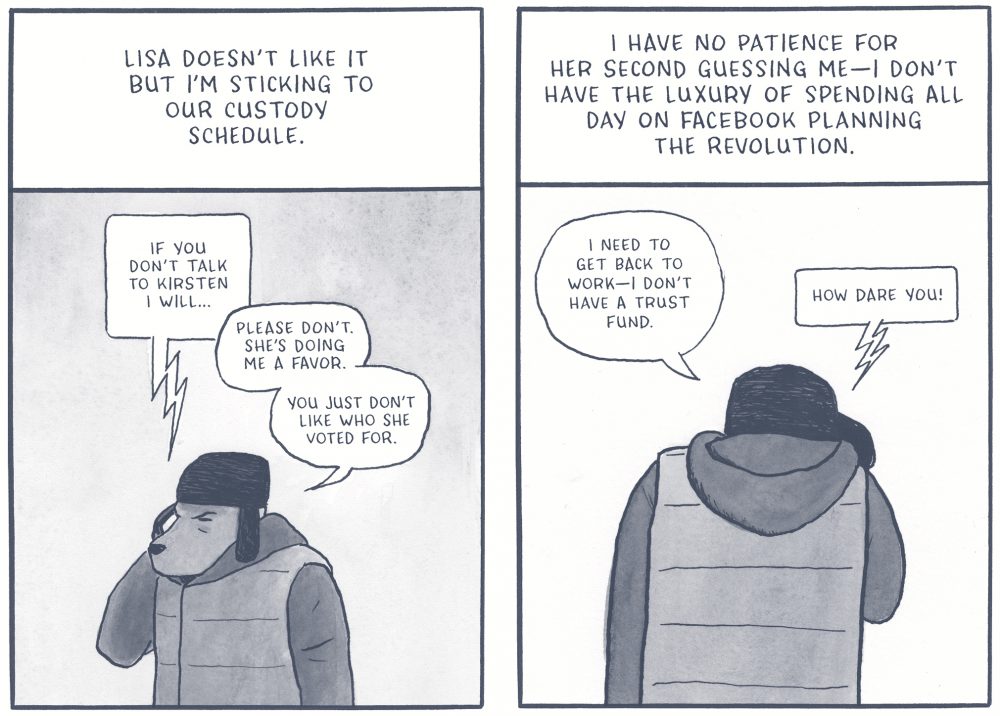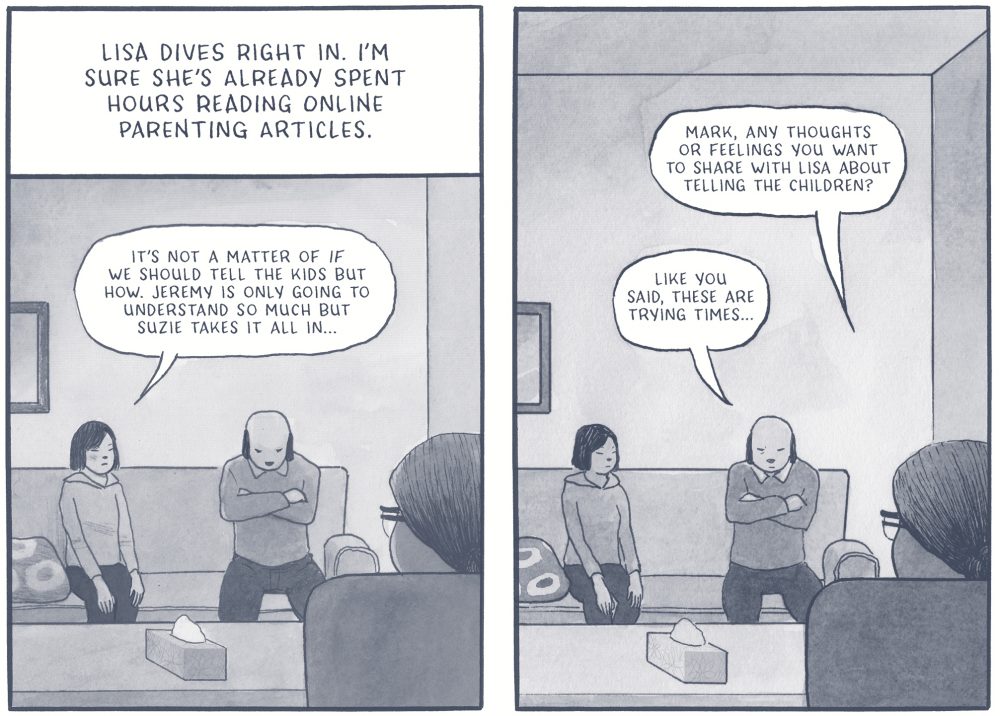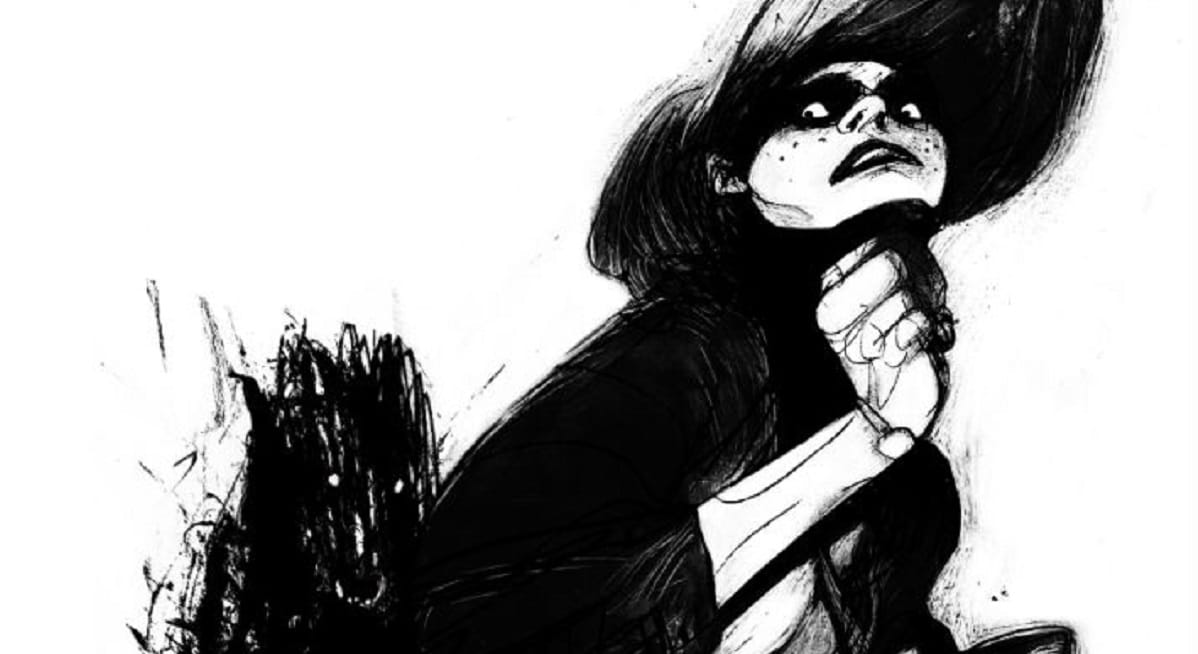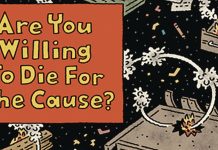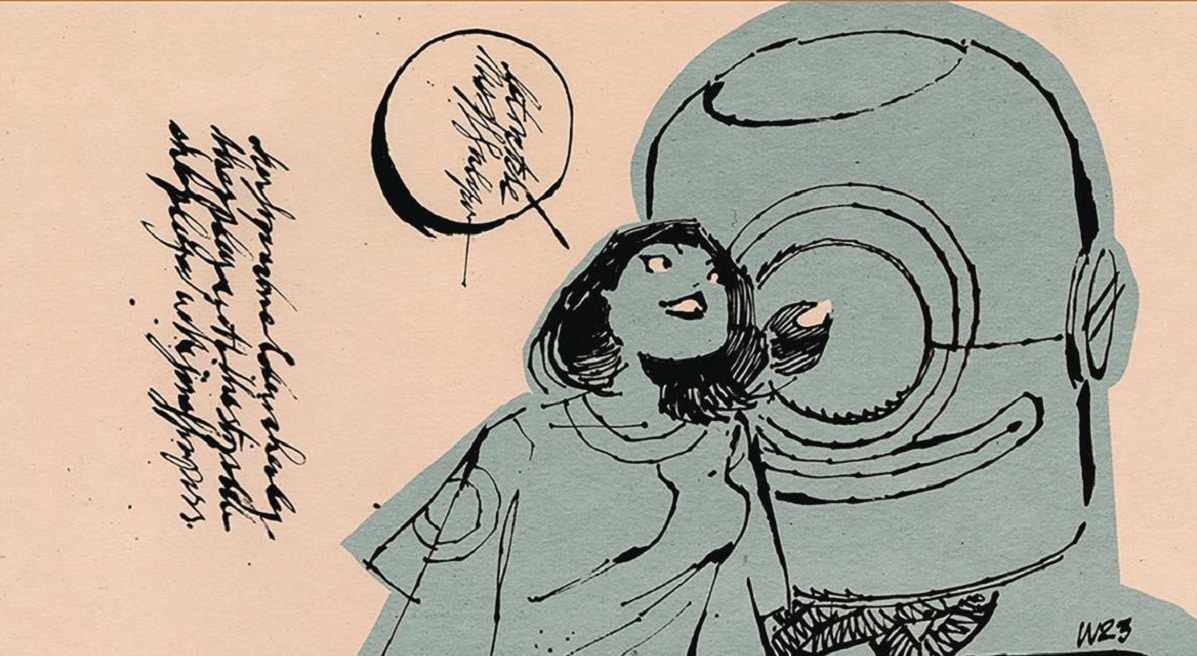By Nancy Powell
The Presidential election of 2016 was an emotional and grueling time for many of us. Its aftermath left such animosity and despair that it was hard to imagine a future without doom. Not only did the election divide the country culturally, racially and ideologically, but it drove a dagger between friends, family, and marriages. Not since the racially charged turmoil of the 1960s had there been such social upheaval.
James Sturm (The Golem’s Mighty Swing, Satchel Paige) took pen to paper to capture the turmoil of that year for Slate, and the result was Off Season, in which a marriage and family unravels amidst the electoral battle. Mark is a recently separated contractor whose boss Mick stiffs his wages. Mark is a disaffected, election-weary white man struggling to support his children while bottling up his emotions. He is a lukewarm supporter of Bernie Sanders initially, but gives progressive politics a cold shoulder when Lisa, Mark’s wife and gung-ho liberal activist, leaves him.
The marriage is fraught with internal struggles as election season unfolds; Lisa judges Mark’s behavior in light of her beliefs, just as Mark judges Lisa to be “the privileged trust fund child with the luxury of spending her leisure in support of progressive politics.” Mark vocalizes his pent-up emotions; Lisa hides her own insecurities behind a veneer of self-righteousness. “I have no patience for her second guessing me—I don’t have the luxury of spending all day on Facebook…planning the revolution,” says Mark in bitter judgement of Lisa’s behaviors. As Mark falls deeper into debt, his anger becomes more pronounced. As a last straw over his financial misfortunes, Mark takes a hammer to a client’s home, and Mark’s behavior and parenting choices alienate him further from Lisa.
Sturm’s characters are anthropomorphic dogs who express themselves with minimal dialogue. They fight for economic and social survival in a bleak, blue and white landscape charged with emotionally raw emotionally, simmering anger. The battle that Mark wages with Mick and with Lisa mirror the election-year discord unfolding along gender and cultural lines. Mark’s actions come across as entitlement by white privilege, even as the reality of his working class life should conceivably pull him in an alternate direction. There are deeper forces at play, with a marriage winding to an unfortunate end, the election as its caustic backdrop. Strum’s narrative never feels preachy even as his characters face a deepening ennui that threatens to spread its icy talons well beyond the election.
It is hard to see beyond the oppressive circumstances of Off Season, but somewhere buried in Mark and Lisa’s journey is a kernel of hope and the knowledge that they can arise from their emotional grief and survive.


